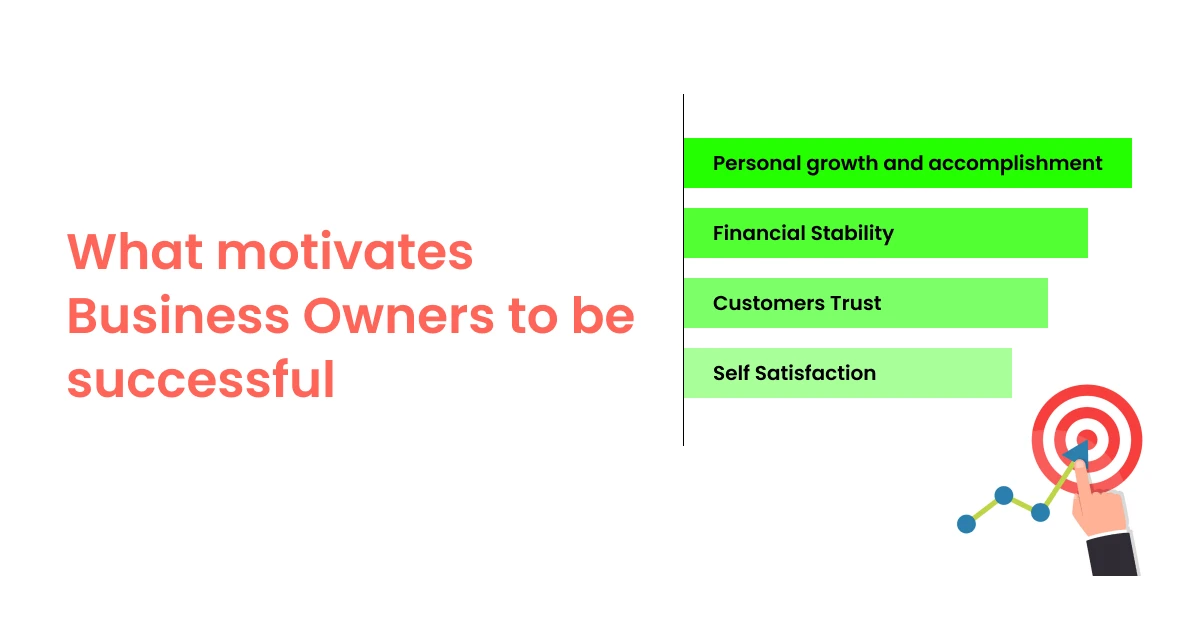Thinking of starting your own business? Being a budding entrepreneur isn’t easy. And what complicated the matter is several misunderstandings and myths associated with running a successful enterprise.
It’s true that a successful business requires time, effort, and uncompromising skills to promote something innovative. But, you don’t need to be an expert in a particular field to start one. Getting in touch with the right IT staff augmentation company and hiring the right people can help you grow your business and debunk all the myths and exaggerations associated with owning one.
So, if you have your business plans ready and a clear objective in mind, here are some of the most common myths you need to stray away from. Read the article to explore some common misunderstandings in the entrepreneurship realm and analysis of what actually is true.
1. You Need To Become A High-Risk Taker To Become An Entrepreneur

It’s true that business owners need to take risks for a successful business. But, this does not mean you need to put everything at stake to run a business. Several business tycoons understand the need to take risks but also keep in mind that excessive risk can be a hazard.
Contrary to this misconception, entrepreneurs do not need to take too many risks. Though several business owners enjoy challenges coming their way, everything you put at stake should be calculated. Successful owners rarely act until they calculate everything and consider all the dangers involved in a new prospect. This characteristic helps business owners to take their enterprise to heights, while others simply lose everything to the risk.
Fact: Business owners should take calculated risks after considering the pros and cons of their actions.
2. Entrepreneurs Are Never Self-Made
This is perhaps the biggest misconception that stops several possible owners from starting something worth the risk. Many people think you need to be born with specific capabilities or come from a business family to become a successful entrepreneur. It is also believed that most successful business owners come from rich families, and they become successful because money is never a constraint for them.
However, experts note that most successful business owners never really belonged to business or rich families. Though belonging to a rich or influential family can be an added advantage, most successful owners are self-made and self-taught.
Moreover, some business owners don’t even have a proper degree but still have certain skills like out-of-the-box thinking and passion to leverage smart technology and become successful. To start a business, you can not stop just because you are not inherently rich or influential. Starting a business can be a huge step, but the only thing mandatory is consistency, hard work, and innovation. Also, there are several short-term entrepreneurship courses that can help you develop the needed skill set to run your own business.
Fact: Entrepreneurs can be taught how to run a business.
3, Most Entrepreneurs Are Socially Introverted
We must agree that this one is wildly inaccurate. Initially, entrepreneurs might work on their own, but once they hire a team or outsource help from an offshore development center, they are generally outspoken and quite confident when expressing their pitch to potential clients.
To thrive, communication is the key. Keeping this in mind, entrepreneurs prioritize communication to ensure proper goal completion within the predicted timeline.
Fact: Most successful entrepreneurs work in a team rather than working alone.
4. Running A Business Means No Personal Life

There’s no denying that most business owners work long shifts, but this does not apply to only entrepreneurs. In fact, CEOs, managers and business heads work crazy hours too, 40 hours per week, if we are being precise.
The crux here is motivation. If you love your work, you won’t mind spending a lot on your work. However, with time, entrepreneurs do learn to strike a balance between work and personal life. This happens when you take control of your time and provide flexibility not only to yourself but also to your employees. You can also hire software developers from an IT staff augmentation company if you are a tech-based company.
So, contrary to this major misconception that entrepreneurs work 24/7, business owners are pretty particular about their schedules. So, even though they work hard all week, they make sure to spend the weekends with their family.
Fact: With flexible schedules, entrepreneurs can strike a work-life balance.
5. You Need To Be Tech-Savvy To Start Your Own Business
We bet you know some of the tech wizards with successful businesses on your fingers. But, in reality, the success of most IT entrepreneurs is usually exaggerated to the public. In fact, tech wizards with successful businesses are only a handful.
Factually speaking, entrepreneurship is versatile, and you don’t need to have extensive IT knowledge to run a business. You can always outsource your tech needs from an offshore development center. So, instead of following a trend of being IT or tech-savvy, follow what you are passionate about.
Fact: Entrepreneurship is a versatile field and not restricted to tech wizards.
6. The Only Motivation To Run A Business Is Getting Rich

Hate to break it to you, but no business is a get-rich-quick scheme. Whether you are starting an IT company or an offshore development center, you must note that any business can take up to 4 years to run even.
Another common mistake most business owners make is purchasing luxury before they become successful, like purchasing a car or house. Most successful owners drive simple cars, wear regular clothes, and put extra cash into something that would positively impact their business. This is why the rich get richer, and the poor get poorer.
Even though money can be the primary driver for most business owners, humanitarians do exist. Moreover, the primary objective for a business should be growth and not just wealth.
Fact: Entrepreneurs Are Driven To Both: Money And Growth
7. Business Owners Switch Job Frequently
As concluded by a recent analysis of a study, most entrepreneurs have worked as employees for several years before starting their business. With this experience, they gained insight into how to run a business and how to launch a business idea.
In fact, most entrepreneurs had a high rate of success before they switched jobs and went venturing. However, not all entrepreneurs have worked as employees to be successful. The crux here is that most entrepreneurs prefer stability and are quite resistant to changes.
Fact: Business owners like stability and are often resistant to changes.
Read Also: How to start a business online
8. Entrepreneurs Do Not Require Financial Assistance
Coming up with a business idea is not the only thing that matters. Besides this, you need financial backup to launch your new business idea and market it on several platforms to improve brand visibility and reach the target audience.
So, though people might believe that entrepreneurs are self-made, most do need financial assistance. Let’s face it: it’s a competitive world out there, and a small contribution from a venture capitalist can help business owners a lot.
Though we are not implying that entrepreneurs without financial backup or assistance fail, having your finances covered can be a gold mine for start-ups.
Fact: Entrepreneurs need financial backup and might connect with a venture capitalist for the same. While some might be willing to use their savings, not everyone is comfortable with this idea.
9. Business Owners Are Deceitful And Ruthless
This one is more of a stereotype than a myth. There’s a lot of misconception that most business owners are ruthless and might topple anyone who comes in the way. Honestly speaking, it’s just a public exaggeration for mere entertainment purposes.
Even if a business owner is deceitful, they would have a tendency to detach themselves from people, which would mean separating themselves from possible growth and opportunities.
Instead, here’s a reality check. Entrepreneurs are warm-hearted, and most even have several charity programs actively going on. Though the main aim of running a business has always been getting richer, most business owners do work for a social cause.
Fact: Entrepreneurs are not deceitful. Though the way of working might be a lot different, they are more focused on success rather than people association.
Read Also: Job vs Business – What Should You Choose?
10. Business Owners Do Not Have Dedication
If we say this one’s true, there’s no way our world would have ever seen a sudden influx of business tycoons. In fact, entrepreneurs run on nothing but dedication, at least successful ones do.
In addition to being highly dedicated, most entrepreneurs are committed to the company’s growth and becoming their own boss. There’s a certain sense of freedom that diverts successful entrepreneurs into giving their best towards their business.
It’s true that sometimes some entrepreneurs might be tempted to change directions, but this does not mean that they lack dedication. In fact, they find shortcomings in their business plan and switch to a new one to control losses.
Simple 9 Tips For A Successful Business
For a successful business, you need more than just a creative idea or financial backup. You need skills, a business plan and good planning to make things successful. While you can hire a whole team of remote developers from an IT staff augmentation company, here are the top nine things you must keep in mind to bring success to your business.
- Keeping everything organized: Task completion should be at the top of your checklist. And, to ensure proper delivery and deadlines, you must keep everything organized as a business owner. Consider making a checklist or using SAAS software if you have a huge team.
- Detailed Recording: You need to maintain a record of every business strategy or plan you ever implemented. This could help you with the challenges you are currently facing. To get started with, you must maintain a physical record and the one in the cloud.
- Keeping an eye on competition: The more you are in sync with your competition and know what they are doing, the better your business strategies will be. Moreover, it will also help you use your creative skills and provide new services to the customers.
- Calculating rewards and risks: Every risk you take should be weighed about the pros and cons of that risk. In short, you must ensure that the risk you are taking is worth the reward you might get.
- Boosting creativity: Out-of-the-box thinking is the key to success. Whether it is your marketing campaign or branding, you must add that creative factor to catch the eyes of your potential clients.
- Staying focused: You can’t just expect results within a day or two. You would have to work hard, stay dedicated, and be consistent if you want to see proper results.
- Learning to make sacrifices: If you are planning to start a business, understand that the first year would require the most arduous work. In short, you must be willing to spend less time socializing.
- Providing the best services: Everything you offer, from packaging to service quality and customer care, should be outstanding and based on a customer approach.
- Consistency: To make your business successful, you must adapt to long-term habits and consistency.
5 Most Vital mistakes the First-Time Entrepreneurs commit!
The startup success rate is claimed to be at less than 10% which is fairly low. For any business to run successfully the first priority is MONEY. If you have money then you have the leverage to make mistakes, errors, and experiment. However, this absolutely does not mean that you start running behind the money.
On the contrary, money should be your last priority. While being aware of how to spend it wisely. For most first-time Entrepreneurs, it is especially tough since there are so many things to do.
Apart from thinking about the new features, procurement, and operations, there are still a zillion other things to care about. In the midst of this, they miss out on properly calculating and planning their investments.
Indeed this article would be too short if I had to cover all the points. So I am just mentioning the 5 points that are most vital. The below 5 points are all different aspects of the startup phase but are directly or indirectly related to some chunk of money being wasted. The first 3 points will relate to the pre-launch issues and the latter will emphasize the post-launch aspects.
Conservative way of idea validation: (Failing to talk to the real customers):
Traditionally entrepreneurs had to do a lot of research to validate the idea. Because people would be reluctant to share their experiences, and also because, for some, there was no way to identify and target their customers.
Problem:
You will realize it within a few months of operation, whether the idea was improperly validated or not. You would have already invested heavy capital and significant time building the first model. Reworking on the same idea and being defeated once is not just a financial hit but an emotional and psychological hit as well.
Solution:
- Don’t be shy, if you want to be an Entrepreneur you will have to talk and sell your product every day from here on.
- Use social media to find your target audience and organize a meeting.
- Services like Google Maps can help you locate specific shops with their contact details.
- Websites like Type Form and SurveyMonkey can help you create Survey Forms and reach millions of people in a moment.
- Talking to customers to understand what problems they are facing and whether they will buy what you are selling.
They Dive Right into the Development of their website or mobile application:
This one is the most cliched and it is not even the fault of the founders. The real fault is of the development partners, they should inform you of the way things should be worked instead of agreeing to everything that the founder says.
Most of the founders are not technical and there is only so much they can do while trying to get in-depth knowledge of a new domain.
In all honesty, the website (software) development is pretty much similar to developing any startup, all the phases are more or less the same. There is research, a demo, validation, rework and finally launch.
Problem:
It is tough to find a development team that specializes in startups. Traditional development companies will not help you validate your idea and will just build what you ask them to since they are used to working with big companies who already have all the other things sorted.
Solution:
I have an easy-to-follow step-by-step article on How to prepare yourself before reaching out to a development team.
Otherwise, try to find a development team that specializes in working with startups, then it is a jackpot. This will help you in 2 ways, firstly, they will take half of your burden away by guiding you from their experience of working with other startups.
Secondly, their suggestions and inputs will really open a new perspective on the original idea.
Choosing a company based on their image rather than the person they interact with:
The most common way of deciding the tech partner is based on their social media image or its founder’s nature. And insight and it is indeed a good way to filter out the right companies from the crowd.
However, it is important to realize that no matter how good the founder of the social media image of the company is. What matters is the person who will be handling your project.
If the person you are interacting with understands your requirements then you are in safe hands.
Problem:
Social media can be deceptive, the company image and its reality can differ significantly. A Company has made by its employees and no two individuals are equal.
In a typical IT company, a project is generally assigned to a Project Manager and it is this person who will have a major influence on your project.
At times, entrepreneurs get stuck with a person who is not able to relate to the project or provide valuable inputs.
Solution:
Pretty simple, it is very similar to marrying someone. Of course, you see their background but the highest weight has given to the actual communication. And the synergy while getting to know each other. The person you are interacting with matters the most.
Since he will be handling your project. So forget what you read, erase what the founder said and completely concentrate on what the manager is saying.
If you don’t like him ask for a replacement or find a new company. Don’t risk it unless you are confident.
Here are 5 Non-technical ways to hire a technical company
Improper Operational cost calculation:
Well, startups are different, when people say think 3 years ahead they are not talking about the dreams alone. They literally mean it. You need to be prepared for the next three years in advance.
Then, again the “Change” is the only constant and your idea will evolve with time. But setting the right goals and vision are more important than you think.
Problem:
Most first-time entrepreneurs have not experienced enough to micro-calculate and take into account all the possible costs that they would inculcate over a period of time. For example, just something basic, one of my clients forgot to add his own salary. While calculating the price of his product.
Going 3 years without a salary. Another one added his salary but didn’t count his company as a separate entity. Due to this the company account and his person were the same.
Solution:
Plan for small independent phases. The delta of failure would be much smaller for 6 months than for 3 years. There was no defined process to build this maturity it is something you build up with experience. What you can do in your day-to-day life is keep trying to predict the future and improve your strategy with every failure.
Making money the priority:
And finally MONEY, how can we end any topic about life without including the ultimate devil? Every movie has a villain and ours is MONEY. Well, jokes apart, Money is pretty important for any startup or rather any business to survive and thrive. However, there is a huge difference between working for money and earning money.
Problem:
Startups are always in a money-crunched situation and at each step. You, as a founder, will stand at a crossroads and your decision will be the guiding light for your startup’s journey. It can be pretty tempting to choose the direction which glitters but it may not always be the best decision.
Solution:
Well, there are multiple ways to put it. Depending on the person the strategy might change. Nonetheless, no matter whom you take the advice from it will always mean one thing.
Never lose sight of the “WHY”, and why you are starting what you are starting. Till the time you remember the reason. You will always be able to find your way back. Let money be the by-product of what you do not the reason itself.
Worried About Sales? Simple Tips To Delivery Projects On-Time
For any company the most important part is sales. And the best way to get more sales is by delivering your projects on time and with good quality. Confused? Let me elaborate.
To get more sales you need to market yourself well, and what is a better way to market than your clients doing it for you, YES I mean word-of-mouth publicity. Word-of-mouth publicity is considered to be the strongest and most effective way of marketing, the leads you get from your clients referring you to other clients can have up to a 65% higher conversion rate.
So How do you generate this amazing publicity? Ans: By delivering your services well. For multiple reasons, the most important part of delivery is delivering it on time. By delivering your projects before or on time you can save money, and time, take more projects, boost your team morale, and generate more leads.
To ensure project delivery on time here are 5 basic tips that I have used for 30+ projects and delivered all at least 15 days before the delivery date.
You don’t look for the spatula with the pan on gas!!
Getting the delivery done on time starts with making the right proposal. Break the project into different modules and specify the functionality of each module with a fixed deadline, I for one, generally divide it into 3-4 modules.
To start with, consult your developers on how much time it takes for them to develop each module. Now add 5-10 days, depending on the depth of each module, to each module’s timeline. You must be thinking my Business Developers are smart enough to judge it by themselves and you may be right, but what’s the harm in taking a second opinion from the cook himself, after all, he knows it better.
Every developer is different and their strengths may vary. A lot of time we underestimate the project’s potential while developers are the right people to judge the possible challenges the requirement may offer.
After this anytime you receive a requirement with a similar feature you would be in good shape to estimate the timeline without the help of your developer. But make sure that for every new feature requirement, you consult your developer once, it is a one-time investment but it is worth it.
Without proper ingredients, you can never make a great CAKE!!
These basic ingredients for any project in an IT company are the documents. You all know which are the basic documents and which are the ones that you create just to leave a good impression on the client.
The 3 basic types of documents are:
- User flow :
This will help you in covering all the aspects of the project. A lot of time we assume or miss out on some aspect of the project which gathering the requirements, this document will help you cover all the pointers so that there are no new flows or surprises. - Per user functionalities:
Noting down all the functionalities a user case can do helps you break down the project nicely and schedule the project more effectively. It helps in locking the SOW(Scope of Work) so that everyone(client and developer) has their expectations aligned. Also handing over the project to your fellow peer or moving the project from one phase to another of SDLC becomes easy and efficient. - Modular breakdown of projects and their timeline:
Scheduling your deliveries by mentioning the exact dates helps you stay focused and set the right pace of the project, and it helps the client keep track of their project and set expectations accordingly.
This is probably the most important in leaving a good impression on the client, so do it wisely and have proper buffer days for any unexpected troubles.
No matter how big or small the project is you need to have all these 3 documents and there is no exception on leave-out any of these.
Creating a document in the right format is also very important. The flow of each user case should be clearly written and with a clear scope of each functionality. This help the graphic designer set the flow and create a perfect prototype.
It is not a Blind Date it is your life partner!! Know them before marrying.
Before diving in the development phase get your designers on board and create a perfect prototype so that your Clients can imagine how will the end product look like and set the expectations right. Once your prototype is locked you have reduced the scope of surprises to less than 10%. Some of the online prototyping tools are InVision and UXPin, you can find much more online.
Read More: Here is the Difference between UI and UX Design
Now you and the client both know exactly how will each page be displayed, what will be the information showcased on each page, how will each button behave and which action will link to which screen.
When real development starts there will be bare minimum need of confirmation since everything is locked and pre-confirmed, hence the developer can meet the deadlines and manage the speed accordingly.
Development is like surgery if the Doctor doesn’t inform you of the status of the patient, you feel like punching him in the face!!
Communication is the key to any relationship. Although you don’t need any help and have everything that you need for the development, still you need to involve client and keep him updated on the progress. You need to understand that client has his emotions attached with the product and would love to see the progress every once in a while.
It is all good while the things are smooth but what do you do when there is a bug or an error or if you did a blunder. Most of the time we try to keep client oblivious to the problem and just showcase the functionality desired by him, irrespective of the effects your workaround might have.
Never do this, always inform your client about the challenges that you face, he might be angry for a while but will always help you and support you get out of the situation, as a result, he will have more trust and become a long-term loyal client.
Best way to not hinder your development and keep the client happy is by giving him status update emails daily and showing him, in percent, as to how much work is completed, and by keeping a Demo-Call” once in a week. This might take 2 hours of your complete week but will work wonder in your project management.
This is the best time to take referrals from your clients, make a good demo call and he would happily give you more referrals.
A movie is never good if the ending is not sticky!!
You project delivery needs to be the best experience of your complete SDLC. The client will not remember how many times you made him laugh, or wished him on his festivals or took the late-night calls. What matters the most is that last mile, when you are making the website live and he is all excited to showcase his idea to the world. Any trouble there and all your efforts for the past couple of months go for a toss.
To ensure that you make a seamless handover of the project, thorough testing from fresh eyes is a must. Always have your best tester on board at this last step for doing the final testing of the project. Even the very minute of the bug will hurt like a titanic over an ant. I am sure you don’t want to be there.
The places where you need to have your cream focus is on the spelling mistakes, the places where the User first interacts and starts using the application like login and dashboard, and at the validation points. These basic things skip our eyes quite often, especially because we are looking at a much bigger picture hence it becomes even more necessary to have a fresh pair of eyes that can scan every detail.
Epitome of the whole process:
- Lock the Requirement on each phase,
- Client Communication: Consult developers before committing anything to the client and never set the expectation too high which you might not be able to reach. Anything extra will please but anything short of commitment will harm
- Requirement Gathering: Have Proper documentation
- Flow Diagram
- Per User functionality
- Project Breakdown with specific dates
- Prototyping: Use online tools like InVision or UXPin or any other such product to give clear picture of what exactly is to be expected out of the product,
- Development Phase: Give status updates daily over email or project management tools like Basecamp, and keep a Demo-Call to showcase the progress of the project and take feedbacks,
- Testing and Delivery: Get the project tested with fresh pair of eyes which would be interacting with the project for the first time. It is necessary to catch the minor bugs which we are prone to miss.
Wrapping Up: Hire The Best Team With Graffers ID
If you have your business plan ready and want to kick-start your enterprise with a team of the best remote developers, you can outsource this need by getting in touch with us. We, at GraffersID, are an IT Staff Augmentation Company, that helps you Get in touch with global talent.




